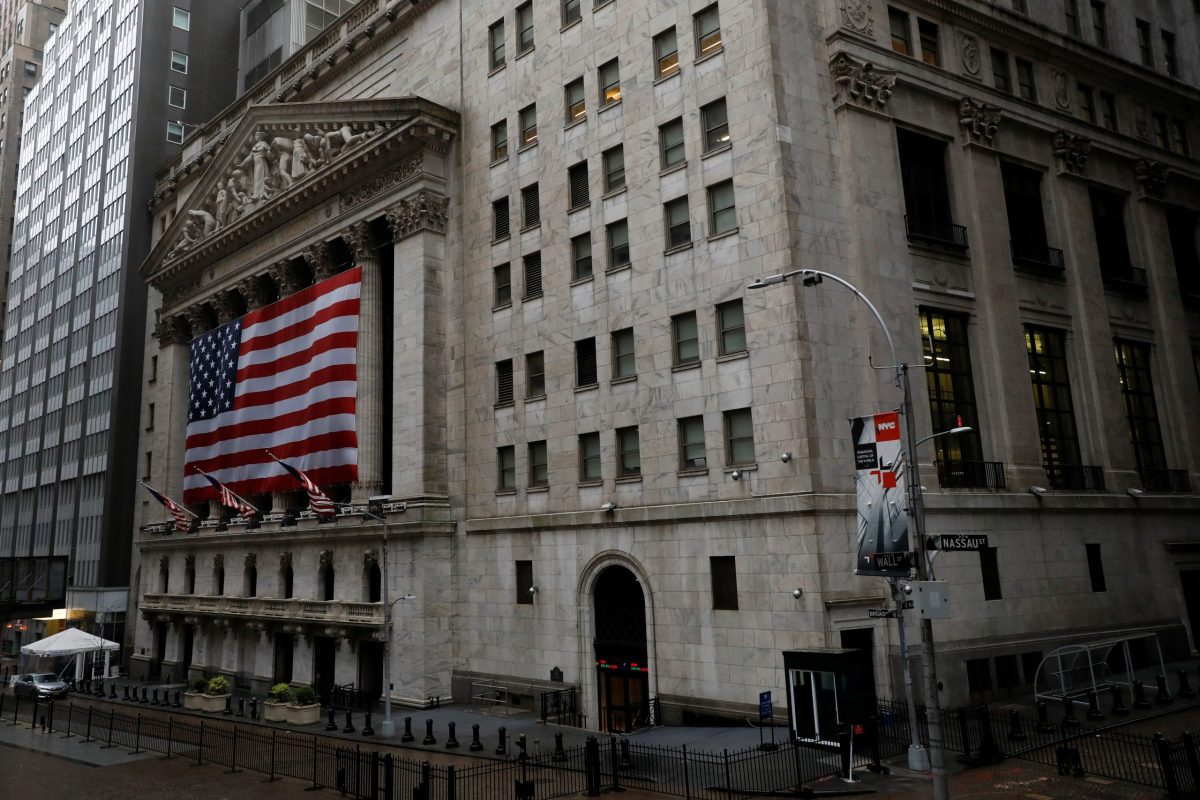BY JESSICA DINAPOLI
U.S. stocks sank on Friday after data showed a worse-than-expected drop in retail sales and as investors worried about increased Sino-U.S. trade hostilities, while signs of a pick-up in demand helped boost oil prices.
The U.S. Commerce Department said Friday retail sales plunged 16.4% last month, the biggest decline since the government started tracking the figures in 1992.
The collapse in retail sales, a significant portion of the U.S. economy, added to a historic 20.5 million job losses last month, underscoring the severity of the economic slump that analysts warn could take years to recover from.
“From bad to worse to worst, the U.S. economy is in the midst of an outright economic free-fall,” said market analyst Christopher Vecchio at Dailyfx.com. “Despite what the U.S. Treasury yield curve has been signaling – less than a 20% chance of a recession within the next 12-months – it’s obvious that fears of a major economic contraction are well-founded.”
Oil prices, however, rose to their highest levels in more than a month on signs that demand from China is picking up and data showing China’s industrial output in April expanded for the first time this year.
But news that the Trump administration has moved to block shipments of semiconductors to Huawei Technologies from global chipmakers could ramp up tensions with China tempered the upbeat mood.
The Dow Jones Industrial Average fell 146.75 points, or 0.62%, to 23,478.59, the S&P 500 lost 22.38 points, or 0.78%, to 2,830.12 and the Nasdaq Composite dropped 82.30 points, or 0.92%, to 8,861.43.
After a bruising week, a broad measure of European stocks was set to end the week almost 4% lower – the biggest weekly fall since the mid-March rout in global stocks as the coronavirus crisis spread worldwide.
MSCI’s world stock index, a touch firmer on Friday, is down around 2.7% this week and also set for its biggest weekly drop since March.
Analysts said this week’s decline, while a natural correction after a rally since mid-March, also reflected growing concerns about rising U.S.-China tensions.
U.S. President Donald Trump on Thursday signaled a further deterioration in his relationship with China over the novel coronavirus, saying he had no interest in speaking to President Xi Jinping and suggesting he could even cut ties with Beijing.
“There is no doubt that the optics around the trade/diplomacy backdrop have worsened in the last week and this has had a negative influence,” Chris Bailey, European strategist at Raymond James in London, said.
U.S. Federal Reserve Chair Jerome Powell has brushed off the notion that the Fed could push negative rates after futures tied to Fed interest rate policy expectations began pricing a small chance of sub-zero U.S. rates within the next year.
The 2-year note last rose 1/32 in price to yield 0.139%, from 0.149%.
Faced with an exceptional hit from the coronavirus crisis, central bankers are under intense pressure to do more to shore up battered economies.
The German economy contracted by 2.2% in the first quarter, its steepest three-month slump since the 2009 financial crisis, as shops and factories were shut in March to contain the spread of the coronavirus, preliminary data showed on Friday.
In currency markets, the dollar index fell 0.15%, with the euro up 0.33% to $1.084.





































